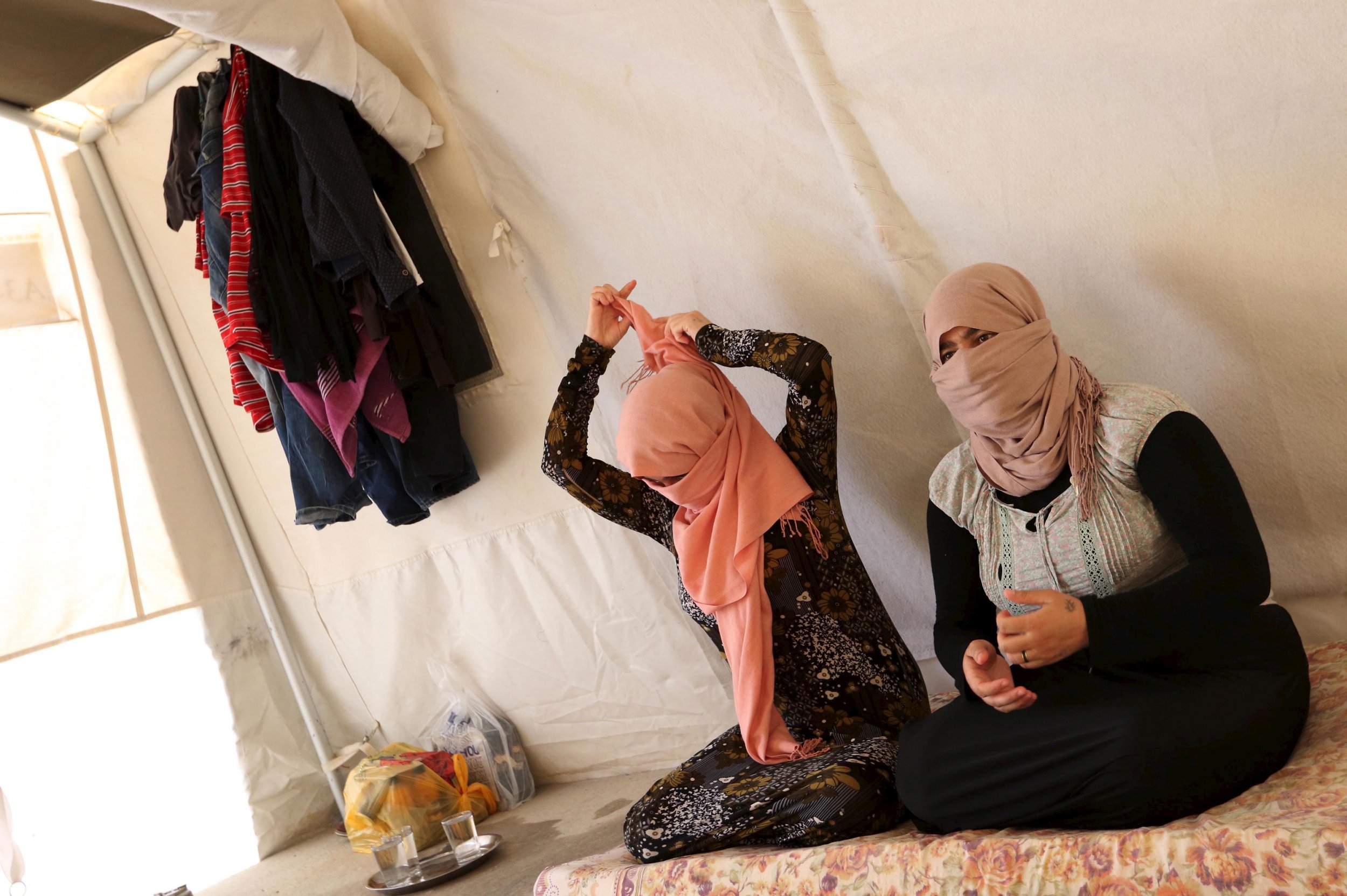
A document issued by the Islamic State militant group (ISIS) that rules on when the "owners" of slaves in Iraq and Syria are permitted to have sex with them has been uncovered by U.S. special forces, Reuters reported on Tuesday.
Related: U.S. Airstrikes Kill IS Leaders Linked to Paris Attacks
In the group's expansion across the two countries, it has kidnapped thousands of women and girls, holding them captive as slaves and selling some on as one of the group's many illegal revenue streams or handing them to fighters as rewards, according to the United Nations and human rights groups. In April, Human Rights Watch detailed the systematic abuse, rape, slavery and forced marriage of 20 ISIS escapees in northern Iraq.
The fatwa, or ruling, released by the radical Islamist group's Committee of Research and Fatwas on January 29 was discovered in May by U.S. forces in Syria, during a raid that targeted ISIS's finance chief Abu Sayyaf, resulting in his death and the capture of his wife.
The document states that a father and a son cannot have sex with the same female slave; the owner of a mother and a daughter, or sisters, cannot sleep with both; and the owner of a pregnant captive cannot sell her on.
If a captive is sold, the previous owner can no longer partake in intercourse with her as "she has become free and is no longer his property," while joint owners of a slave are also banned from intercourse with the captive as she is "part of a joint ownership."
The document, which says that the enslavement of women and children is one of the "inevitable consequences of jihad," also implements a ruling that bans its members from having sex with a pregnant or menstruating captive, causing an abortion, or selling a captive to "an individual whom he knows will treat her badly."
It adds that the owner of a female captive "should show compassion towards her, be kind to her, not humiliate her and not assign her work she is unable to perform."
The rules were put in place, the committee says in the fatwa, because "some of the brothers have committed violations in the matter of the treatment of female slaves. These violations are not permitted by Sharia law."
The document is another example of how ISIS is attempting to impose state-like rules under the banner of its ancient version of Islamic law, with state institutions such as courts imposing Sharia law and officials imposing Islamic taxes on citizens living in the group's self-proclaimed caliphate in Iraq and Syria.
ISIS has also created departments that oversee "war spoils" such as slaves, natural resources, and antiquities seized in its campaign in Iraq and Syria, according to other documents taken in the U.S. raid and reviewed by Reuters. U.S. forces also captured a large data cache on CDs, DVDs, computer hard drives and paper, much of which has yet to be released.
Uncommon Knowledge
Newsweek is committed to challenging conventional wisdom and finding connections in the search for common ground.
Newsweek is committed to challenging conventional wisdom and finding connections in the search for common ground.
About the writer
Jack is International Security and Terrorism Correspondent for Newsweek.
Email: j.moore@newsweek.com
Encrypted email: jfxm@protonmail.com
Available on Whatsapp, Signal, Wickr, Telegram, Viber.
Twitter: @JFXM
Instagram: Read more
To read how Newsweek uses AI as a newsroom tool, Click here.








